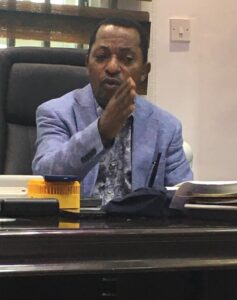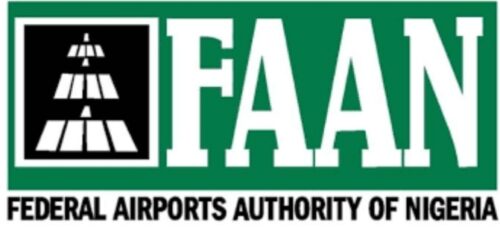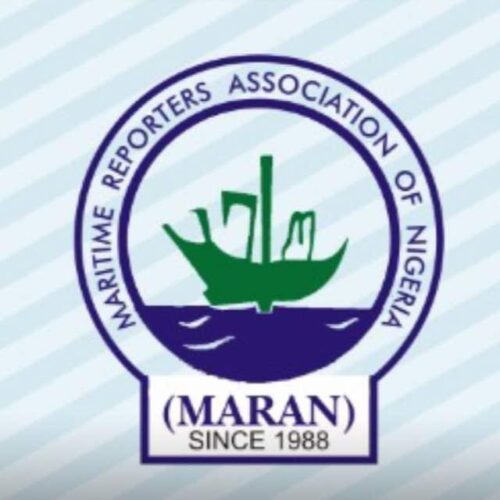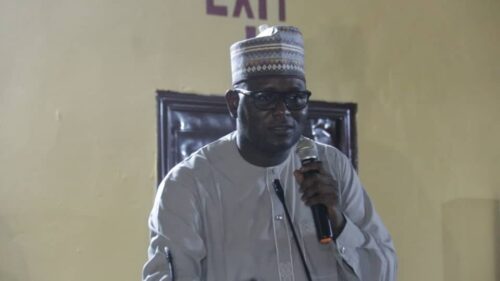How Automation, Transparency can Set Nigeria’s Maritime Sector for its Glory Days- Freight Forwarder
By Nifemi Coker
In a scathing critique of the reintroduction of the International Cargo Tracking Note (ICTN), renowned freight forwarder and Managing Director, Widescope Nigeria Limited, Dr. Segun Musa, has labeled the initiative a “fraud” and a direct threat to Nigeria’s economy.
Speaking to the leadership of the Maritime Reporters Association of Nigeria (MARAN) at his Lagos headquarters, Dr. Musa, who also serves as the National Vice President of the Association of Government Approved Freight Forwarders (NAGAFF), argued that the ICTN is a redundant and costly duplication of the existing Customs Risk Assessment Report.
According to him, the reintroduction of ICTN would only inflate the cost of cargo clearance, further straining businesses and importers.
His concerns are not without precedent. Musa revealed that, following a petition he filed, the International Air Transport Association (IATA) intervened, leading to the suspension of ICTN at Nigerian airports. He questioned why the government is now reviving a system it had previously discarded, suggesting that vested interests may be at play.
Automation, Not Bureaucracy, is the Solution
Beyond the ICTN debate, Musa reiterated the urgent need for full automation in Nigeria’s cargo clearance and delivery processes. He called on the Nigeria Customs Service (NCS) to follow through on its commitment to modernizing operations, emphasizing that the long-promised “B’Odogwu” platform should be fully implemented.
“The world is moving away from analog systems. If we want foreign investment and trade growth, we must embrace automation,” he stated. According to Musa, cargo inspection and clearance should be streamlined through digital solutions, eliminating human interference and reducing the opportunities for corruption. He stressed that freight forwarders should be registered individually with unique identifiers rather than relying on intermediary companies that increase costs and inefficiencies.
Customs’ Role in Revenue Collection: A Need for Transparency
Dr. Musa did not mince words regarding the role of Nigeria Customs Service in revenue collection. He dismissed the idea that revenue generation by Customs is an extraordinary achievement, noting that past administrations, including General Sani Abacha’s, had successfully privatized aspects of revenue collection.
“Customs should focus on border security while a private consortium handles revenue collection. We’ve done it before, and we can do it again,” he asserted, warning that if Customs does not prioritize transparency, he will advocate for its privatization.
Musa further criticized the continued increase in customs duties and revenue targets, describing it as a lazy approach to economic management. He called for an investigation into the Comprehensive Import Supervision Scheme (CISS), alleging that trillions of naira meant for inspection agencies had been mismanaged.
Foreign Involvement in Freight Forwarding: A Misconception
Addressing concerns that foreign entities have taken over Nigeria’s freight forwarding industry, Musa countered the narrative, stating that the sector is inherently international.
“This is a global business. Success in freight forwarding depends on strength and capacity, not nationality. Instead of fearing foreign participation, the government should create an enabling environment for all players,” he remarked.
Musa contrasted Nigeria’s policies with those of China, where the government actively supports local businesses through funding and infrastructure. He lamented that Nigerian freight forwarders contribute significantly to government revenue yet receive little in return.
The National Single Window: A Step in the Right Direction?
Musa acknowledged that initial concerns about the National Single Window (NSW) have been addressed, particularly regarding its management. However, he urged the government to establish a supervisory committee comprising credible industry stakeholders to ensure its effectiveness.
Empowering Sector through Investment in Shipping
Reflecting on the performance of the Ministry of Marine and Blue Economy under Minister Adegboyega Oyetola, Musa was unimpressed. He argued that the sector has long been neglected, and real progress requires competent leadership rather than excessive travel and rhetoric.
“How do we harness the blue economy without ships, equipment, or proper policies?” he asked.
2024: A Year of Challenges and Missed Opportunities
Looking back at 2024, Musa highlighted numerous setbacks, including inconsistent government policies, foreign exchange volatility, and increased customs pressure on importers. He also pointed out the rising cost of transportation due to soaring diesel prices, further straining the industry.
While he acknowledged that opportunities existed to improve the sector, he lamented that freight forwarding associations lacked the strength to defend their interests. The Council for the Regulation of Freight Forwarding in Nigeria (CRFFN), he added, remained ineffective due to internal challenges.
Despite these hurdles, Musa remains hopeful for a more structured and transparent industry, urging all stakeholders to push for reforms that will benefit Nigeria’s economy in the long run.







